Advanced Sales Coaching Strategies
Sales professionals who master advanced techniques don’t just meet quotas they exceed them. At Dynamo Selling, we take a strategic approach to sales coaching, equipping teams with cutting-edge strategies to navigate complex negotiations, build lasting client relationships, and drive conversions. Whether you’re refining your pitch, strengthening resilience, or leveraging psychology, advanced coaching methods can transform your sales performance and unlock new levels of success.
Key Takeaways
- Advanced sales coaching helps professionals refine techniques and maximise conversions.
- Emotional intelligence and adaptability play a crucial role in high-performance sales.
- Personalised coaching strategies ensure continuous growth and skill enhancement.
- Leveraging data-driven insights enhances decision-making and prospect targeting.
- Dynamo Selling offers structured programs to elevate sales capabilities.
Mastering Emotional Intelligence in Sales
Sales is more than numbers it’s about understanding human behaviour. Studies reveal that salespeople with high emotional intelligence (EQ) outperform their peers by 20%. Some of the most effective advanced sales coaching strategies can help sales teams maximise their potential and drive sustained results.
1. Personalised Coaching Plans
A one-size-fits-all approach to sales coaching may yield some short-term success, but to unlock peak performance, personalised sales coaching plans are necessary. Every sales rep brings unique strengths, weaknesses, and motivations to the table. Advanced sales coaches recognise that understanding individual personalities and performance metrics is key to tailoring coaching sessions that resonate and have a lasting impact.
How to Implement It:
- Assess Strengths and Weaknesses: Use assessments such as sales performance reviews, personality tests, or even direct interviews to identify where each rep excels and where they need improvement. These insights allow you to tailor the coaching approach to their needs.
- Set Clear, Personal Goals: Instead of simply aiming for team-wide metrics, set specific, measurable goals for each rep based on their strengths and development areas. This encourages a sense of accountability and personal growth.
- Offer Targeted Feedback: Instead of generalised feedback, provide actionable advice that addresses the individual’s specific challenges. For instance, if one rep struggles with handling objections, role-play scenarios and provide feedback on how to refine their approach.
2. Mindset and Motivation Training
Advanced sales coaching isn’t just about skill-building; it’s also about shaping the right mindset. The psychological aspects of sales are incredibly important. High-performing salespeople possess resilience, a growth mindset, and intrinsic motivation, which help them cope with rejection and stay driven to meet their targets.
How to Implement It:
- Instill a Growth Mindset: Encourage your team to view challenges as opportunities for growth rather than setbacks. Regularly highlight learning moments in coaching sessions, showing how mistakes can be powerful learning experiences.
- Emphasise Resilience: Use role-playing exercises or real-world examples to teach reps how to stay resilient when facing rejection. Acknowledging that rejection is part of the process and helping them develop strategies to bounce back from setbacks can improve both their mental toughness and performance.
- Motivate Intrinsically: Advanced sales coaches recognise that external rewards (bonuses, commissions) are important, but intrinsic motivation such as a sense of purpose or personal achievement is equally powerful. Connect their personal goals with team objectives, making it clear how individual success ties into overall team growth.
3. Data-Driven Coaching
In today’s world, data is a goldmine for driving performance improvement. Sales coaches who rely on intuition alone are missing out on a wealth of information that can reveal where reps need help and which strategies are working.
How to Implement It:
- Use Sales Metrics: Dive into key performance indicators (KPIs) such as conversion rates, average deal size, sales cycle length, and client acquisition costs to pinpoint trends in each rep’s performance. Are they struggling at closing deals or the beginning of the sales funnel?
- Identify Patterns in Data: Look for patterns in the data to understand what’s working for top performers. For example, you might discover that high-performing reps spend more time on qualification calls or use certain objection-handling techniques effectively. Share these insights with the team to highlight best practices.
- Use CRM Tools: Many Customer Relationship Management (CRM) systems offer robust analytics that can track rep activity, client interactions, and progress through the sales cycle. By analysing this data, you can provide more tailored coaching that directly addresses areas for improvement.
4. Behavioral and Situational Coaching
Advanced sales coaching extends beyond theoretical knowledge and focuses on situational learning. Sales reps often face unpredictable and unique challenges in real-life scenarios. Coaches who understand this can use behavioral and situational coaching to help reps adjust their approach depending on the context.
How to Implement It:
- Role-Playing: Create real-world scenarios based on actual customer objections, competitive situations, or pricing negotiations. Role-playing exercises help reps practice and internalise responses to a wide variety of sales situations. This not only builds confidence but also equips them with the tools they need to handle diverse challenges.
- Micro-Coaching Sessions: Sometimes, small moments in a sales conversation are the most telling. Advanced coaches focus on providing micro-coaching during live calls, either by listening in or reviewing recordings afterward. By offering immediate feedback on specific moments in the conversation, you can guide reps toward more effective behaviors.
- Emphasise Adaptability: Teach reps to be adaptive in their sales process. If one approach isn’t working with a particular prospect, they should be able to pivot to a new strategy or technique. Encourage reps to embrace flexibility and evaluate the situation to tailor their response.
5. Peer-to-Peer Learning
Sales coaching doesn’t have to come solely from a manager or coach. Advanced sales coaching strategies recognise the value of peer-to-peer learning. High-performing sales teams often benefit from sharing insights, discussing challenges, and learning from each other’s experiences.
How to Implement It:
- Create a Mentorship Program: Pair newer or struggling reps with top performers who can offer guidance and insight into their sales strategies. This not only provides a platform for learning but also boosts camaraderie within the team.
- Foster Group Discussions: Encourage regular team meetings or “sales huddles” where reps can discuss specific challenges they’ve faced and brainstorm solutions together. Group feedback can inspire new ideas and solutions that might not emerge in one-on-one coaching sessions.
- Encourage Best-Practice Sharing: Create opportunities for your top performers to share their tips and best practices with the team. This can be in the form of a formal presentation, an informal lunch session, or through internal communication channels. Learning from peers makes sales techniques more relatable and applicable.
6. Emotional Intelligence Training
Sales is as much about connecting with people as it is about selling a product or service. Advanced sales coaches help reps build emotional intelligence (EQ), which allows them to build stronger relationships with clients, understand customer needs, and empathise with their concerns.
How to Implement It:
- Develop Active Listening Skills: Train your team to listen actively by paying attention not just to the words a prospect says but to their tone, body language, and underlying emotions. This allows reps to understand the real pain points and desires behind a customer’s objections.
- Teach Empathy in Sales Conversations: Empathy is the ability to relate to a prospect’s feelings and perspective. Encourage reps to ask open-ended questions, show genuine interest, and validate the prospect’s experiences. This builds trust and rapport, making it easier to move forward in the sales process.
- Manage Emotions During Sales Cycles: Sales reps often experience strong emotions like frustration or excitement throughout the sales cycle. Advanced sales coaches help reps develop emotional regulation techniques to stay calm and focused, even during challenging or high-stakes interactions.
Conclusion
Sales success isn’t just about what you sell it’s about how you connect, persuade, and position yourself as a trusted authority. At Dynamo Selling, we deliver cutting-edge coaching strategies that enhance performance, resilience, and results. Ready to elevate your sales game? Contact us today and take your skills to the next level.
FAQs:
How does emotional intelligence improve sales?
Sales professionals with high EQ connect better with clients, manage objections effectively, and close deals more efficiently.
What role does data play in sales coaching?
Data analysis helps identify buying patterns, prospect behaviours, and optimal engagement strategies, leading to more targeted sales approaches.
How can role-playing exercises improve sales performance?
Live practice refines communication skills, enhances objection-handling, and builds sales confidence, making interactions more impactful.
What’s the difference between standard and advanced sales coaching?
Standard coaching covers basic sales techniques, while advanced coaching delves into persuasion psychology, strategic negotiation, and personalised growth plans.
Where can I find expert sales coaching programs?
Explore Dynamo Selling for industry-leading sales coaching solutions.



